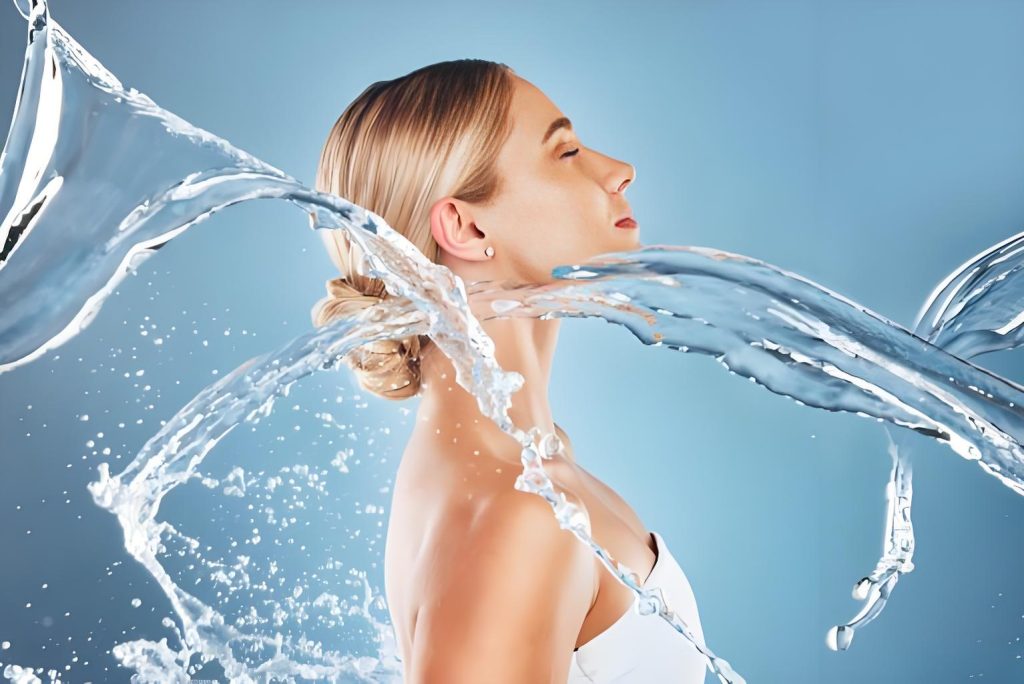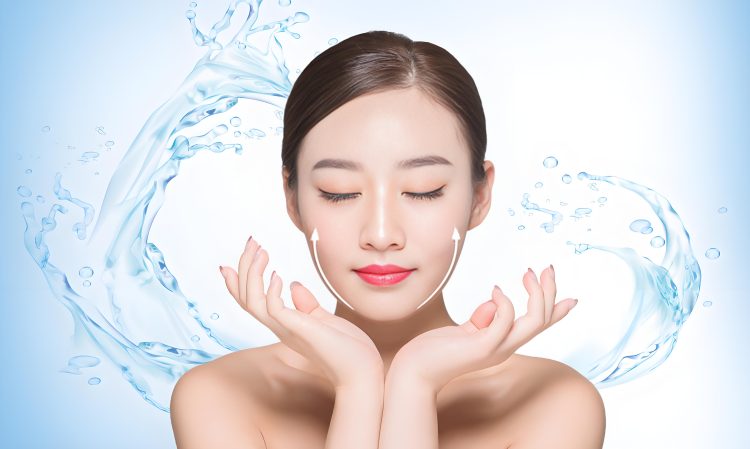In the vast world of skincare, hydration stands as a cornerstone—a vital element that holds the promise of radiant, healthy, and youthful skin. From the first gentle touch of morning dew to the calming embrace of a night cream, understanding and nurturing your skin’s hydration needs is a journey of self-care and beauty. This guide unravels the intricacies of moisturizing and replenishing your skin, offering a holistic approach to achieving that elusive, dewy glow.

The Science Behind Hydration
To grasp the importance of hydration, let’s delve into the science behind it. Our skin is the largest organ in the body, acting as a barrier that protects us from external elements while regulating temperature and maintaining fluid balance. This delicate barrier is composed of multiple layers, with the outermost layer, known as the stratum corneum, playing a crucial role in retaining moisture.
The stratum corneum is made up of cells held together by lipids (fats) and embedded with natural moisturizing factors (NMFs) like amino acids, urea, and lactic acid. These NMFs attract and bind water molecules, creating a hydration network that keeps the skin supple and elastic. When this network is disrupted—due to environmental factors, aging, or improper skincare—the skin can become dry, flaky, and prone to irritation.
The Difference Between Moisturizing and Hydrating
Often used interchangeably, moisturizing and hydrating serve distinct yet complementary purposes in skincare.
Hydrating involves adding water to the skin, replenishing its moisture levels from within. Ingredients like hyaluronic acid, glycerin, and panthenol are excellent humectants, meaning they draw moisture from the environment and bind it to the skin. They work best when the skin’s surface is somewhat damp, as they can then lock in this additional water.
Moisturizing creates a protective barrier on the skin’s surface, preventing moisture loss and keeping the skin smooth and supple. Emollients and occlusives are the heroes here. Emollients, such as ceramides, fatty acids, and cholesterol, fill in gaps between skin cells, smoothing the surface. Occlusives, like petrolatum, dimethicone, and shea butter, form a physical barrier that traps water in the skin, preventing evaporation.
Identifying Your Skin Type and Hydration Needs
Effective hydration starts with understanding your skin type. Different skin types have varying hydration needs:
- Dry Skin: Characterized by a rough texture, tightness, and fine lines, dry skin requires both hydrating and moisturizing ingredients to replenish lost moisture and strengthen the skin barrier.
- Oily Skin: While it may seem counterintuitive, oily skin also needs hydration. Excess oil production can sometimes be a sign of dehydration. Lightweight, non-comedogenic moisturizers with hydrating ingredients like hyaluronic acid can balance oil production without clogging pores.
- Combination Skin: This skin type is a mix of dry and oily areas, often with a T-zone that’s oilier and cheeks that are drier. A balanced approach using a gel-based moisturizer with hydrating properties can address both concerns.
- Sensitive Skin: Easily irritated and prone to redness, sensitive skin benefits from gentle, hypoallergenic products that focus on soothing and hydrating ingredients like aloe vera, chamomile, and green tea.
- Normal Skin: While normal skin may seem balanced, it still requires regular hydration to maintain its health. A lightweight moisturizer with a blend of hydrating and emollient ingredients can keep it looking fresh and radiant.
The Role of Diet and Lifestyle in Skin Hydration
Hydration isn’t just about what you put on your skin; it’s also about what you put into your body. Your diet and lifestyle play a significant role in maintaining skin health.
Water Intake: Drinking plenty of water throughout the day keeps your body—and your skin—hydrated. Aim for at least 8 cups (2 liters) of water daily, but adjust based on your activity level, climate, and individual needs.
Nutrient-Rich Foods: Foods high in vitamins and minerals, especially those rich in omega-3 fatty acids (like fatty fish and flaxseeds), antioxidants (such as berries and leafy greens), and water content (like cucumbers and watermelon), can boost your skin’s hydration from within.
Sleep and Stress Management: Quality sleep and effective stress management are crucial for skin health. Lack of sleep and high stress levels can disrupt the skin’s barrier function, leading to dehydration and premature aging. Prioritize rest and relaxation to keep your skin looking its best.
Skincare Routine for Optimal Hydration
Creating a skincare routine that addresses hydration at every step is key to achieving and maintaining healthy, glowing skin.
Cleansing: Use a gentle, hydrating cleanser that removes impurities without stripping the skin of its natural oils. Look for cleansers with ingredients like glycerin and panthenol.
Toning: A hydrating toner can help balance the skin’s pH levels and prepare it for subsequent products. Opt for toners with hyaluronic acid or botanical extracts to boost hydration.
Serums and Treatments: Serums are a powerful way to deliver concentrated doses of hydrating ingredients directly to the skin. Choose formulas with hyaluronic acid, glycerin, ceramides, and peptides for maximum hydration and barrier repair.
Moisturizing: Apply a moisturizer tailored to your skin type. For dry skin, a rich cream with occlusives like shea butter and petrolatum can be beneficial. For oily or combination skin, a lightweight gel or lotion with emollients and hydrators like ceramides and hyaluronic acid is ideal.
Eye Care: The skin around the eyes is thinner and more prone to dryness. Use a hydrating eye cream with ingredients like caffeine, collagen, and hyaluronic acid to reduce puffiness and keep the area smooth.
Lip Care: Don’t forget your lips! Use a hydrating lip balm with ingredients like beeswax, lanolin, and hyaluronic acid to keep them soft and smooth.
Sun Protection: Last but not least, always protect your skin from the sun’s harmful rays with a broad-spectrum SPF. Sun exposure can damage the skin’s barrier, leading to dehydration and premature aging.
Advanced Hydration Therapies
For those seeking more advanced hydration solutions, consider incorporating professional treatments into your skincare routine.
Hydradermabrasion: This combination of dermabrasion and hydration infuses the skin with serums containing hyaluronic acid and other hydrating ingredients, leaving it smoother, brighter, and more hydrated.
Hydrafacial: This popular treatment uses a patented vortex technology to cleanse, extract, and hydrate the skin. It infuses the skin with antioxidants, peptides, and hyaluronic acid, promoting a radiant, healthy glow.
Injectable Hyaluronic Acid Fillers: For deeper hydration and wrinkle reduction, injectable hyaluronic acid fillers can restore volume and hydration to the skin, providing long-lasting results.
Conclusion: Embrace Hydration for Radiant Skin
Hydration is the cornerstone of healthy, radiant skin. By understanding the science behind hydration, identifying your skin type and needs, maintaining a balanced diet and lifestyle, and creating a comprehensive skincare routine, you can achieve the hydrated, glowing skin you’ve always dreamed of. Remember, skincare is a journey, not a destination. With patience, consistency, and the right products, your skin will thank you with a youthful, dewy complexion that radiates health and beauty.












































